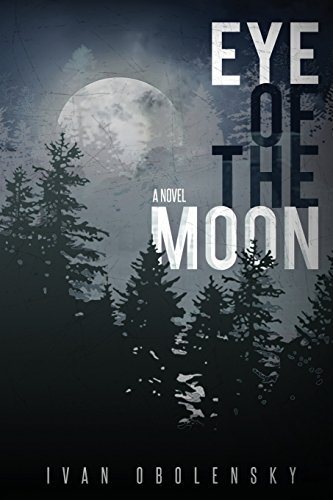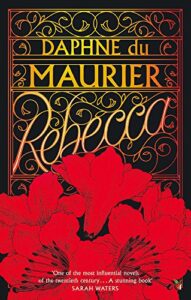
Following find an interview with author Ivan Obolensky.
Eye of the Moon was published on February 6, 2018.
What’s the book’s first line?
“Rain was threatening as I looked out my window on that Wednesday morning in the spring of 1977.”
What’s the book about? Give us the “pitch”.
Eye of the Moon revolves around Percy and Johnny as they attend a house party with family and guests. Everyone has their own agenda, or secret to reveal, even the servants. Shadowing the story is the mysterious death of Johnny’s Aunt Alice, and her tragic obsession with the occult. Was she murdered, or was she the victim of something else? Spun with suspense and realistic magic, Eye of the Moon is a brisk tale that will keep you reading late into the night.
What inspired you to write the book? A particular person? An event?
I grew up in an environment that was unique. There were cooks, maids, butlers, and chauffeurs. My father had an estate overlooking the Hudson in Rhinebeck, New York. He inherited the gray fieldstone house from my grandmother, who was a patron of the arts and had a particular fascination with Egyptology. I was told that she died reading the Egyptian Book of the Dead.
The house, itself, was a mysterious place: huge, dark, and silent, other than the ticking and periodic chiming of the clocks. We would visit with a governess to see my father during school vacations. There were several “incidents” during those times. What they were exactly was kept from us, but children are quite perceptive, particularly in our family. We felt the unease and heard the conversations cut off mid-sentence when we approached. Those that surrounded us were afraid, but of what they wouldn’t say. I found out years later that many of the servants and several guests had seen the spectral form of my grandmother moving through the house in the dead of night. One governess refused to return. Add to that my father’s ghostly tales told over lunches at the St. Regis, and I was thoroughly enchanted by the place.
Because of the strange things that happened there, I always thought it would be a wonderful setting for a story. I took those mysterious elements and added my own. As to whether there really was a ghost, I cannot say. I never saw a one, although I kept a constant lookout when I visited. Over time, I concluded that ghosts were an aspect of life unique to the adult world. I hoped that when I was grown up, I, too, might encounter one and looked forward to that moment through much of my youth. I am still waiting.
What’s the main reason someone should really read this book?
All readers love a good story, and I think this is a good one. Answering as a reader, I have read this novel many times, what with the many editions and the constant searching for typos. What has surprised me is that this book has continued to hold my interest. No matter how often I’ve read it, there are still parts that choke me up, dialogues that make me laugh, and others that make me wonder. I believe that other readers will feel that same magic when they read it, and that they will also experience the power of deep connections made possible through intimate dialogues. Today, electronics of all types have taken center stage. We are connected like never before, but find ourselves oddly alone and isolated. Reading this book will help, I think, to alleviate that for a time, while demonstrating the power of the spoken word to change ourselves and others.
What’s the most distinctive thing about the main character? Who-real or fictional-would you say the character reminds you of?
None of us are perfect. We are amalgams of positive and negative, good and bad, male and female. The good that is in us cannot exist without our darkness, because it is often that darkness that allows the good to be brought forth. The novel is told from the point of view of Percy, but there are two main characters, Percy and Johnny. Johnny is ever the optimist, flamboyant, and brilliant. Percy is equally smart but more introverted, tentative, and fearful. Percy has to find and accept that he cannot simply turn inward to eradicate the sources of his difficulties and that looking to external causes and dealing with them is more challenging than introspection. Johnny, on the other hand, must look inside himself and deal with what he finds. Greatness requires that we embrace all that we are. The most distinctive thing about Percy, from the author’s point of view, is his willingness to re-evaluate the assumptions he has made and how by doing so, the world he understands is more in-keeping with the world that is. Percy is like the Stephen Maturin part of the Aubrey-Maturin friendship that Patrick O’Brian made famous with his Master and Commander Series.
If they made your book into a movie, who would you like to see play the main character(s)?
A difficult question. The characters are unique. Paul Bettany, who played Maturin in the film, Master and Commander, is a pretty good Percy. While Johnny requires a complete extrovert. The other characters, particularly Maw require a strong woman. Meryl Streep would work. Maggie Smith would as well. Cora Crawley of Downton Abbey would be wonderful as Johnny’s Mother, Anne, as would Hugh Bonneville as John, Senior.
When did you first decide to become an author?
It was not so much my decision but that of my wife, who is also my boss. She wanted me to write nonfiction articles for our website to demonstrate our skills at translations. As my confidence improved, as well as my ability to write more clearly, I decided to write a novel based on my father’s house, which I had visited over several vacations as a child. It was a mysterious place and begged to be the subject of a novel. I was happy to comply.
Is this the first book you’ve written?
Yes.
What do you do for work when you’re not writing?
My wife has a translations company called Dynamic Doingness, Inc. that caters to corporate clients. I do much of the post-production design work when needed. Work comes in waves, and often I have to interrupt my writing. This is a blessing because I have to continuously reassess what I have written and often the interruptions allow me to come up with fresh ideas and a better way to express a concept.
How much time do you generally spend on your writing?
That depends on the workflow. I will sometimes go several days without writing a thing, but that does not mean I don’t think about it. When I have an article deadline, I will write an article in two days of some two thousand words on a subject of my choosing. It might be on parasitology and systems to history and ancient civilizations. What I have written goes through several editors and translators. It is a concentrated process. On fiction, I write as I can, usually in snatches, but I am always thinking about the story in the back of my mind. In the future, I expect to be writing more.
What’s the best and the hardest part of being an indie?
The best is simple. I write what I write, about what I want to write about. There are no deadlines. No advances. No commitments to anyone other than to myself and my joy at reading what I have written. When doing something you love becomes the source of income, the pressure to perform can turn a joy into something else. The emphasis shifts toward public and publisher acceptance rather than personal delight. I always hope that what I write and what the public wants to read intersect in a big way, but that’s not always possible. Writing fiction with contractual obligations and future sales figures in mind is a burden I would rather not have. Being an indie means I don’t have to.
The hardest thing about being an indie is that one is an individual. Writing may be a solitary performance but getting a work out requires teamwork. Very few authors can write and publish themselves with the necessary skill required. I have an extraordinary support system that loves to work out how to get what I have written out there. Simply put, I could not do that without them. Being all alone, even if what you have written is on par with Hemmingway or Faulkner, will not get it out and into the world. Sometimes a work has its own magic that allows it to fly, but that is rare, and often that flight takes place posthumously. Organization is required to get a book out and widely distributed. That infrastructure is often not available to the indie writer. The good news is that organizations like IndieReader are helping authors with this challenge.
What’s a great piece of advice that you can share with fellow indie authors?
I have two. First: Delight the reader, even if it is only yourself. Secondly: fiction writing is all about listening to the Muse. Drama has its roots in ancient Greek religion, particularly in the ecstatic rites of Dionysius. Writing for an audience is folly. Give them what they want, and that is all they get. Writing for oneself is better. One only has oneself to please, provided one has the reading and life experience. Writing for the muse is something else again. One is confronted with the unknown, the impossible, the illogical, the mysterious, the divine. The thoughts that stem from those dramatic roots seep into us as inspirations that most will reject as having gone too far, or not far enough. The muse stretches our vulnerability, and we grow uncomfortable and afraid. What if no one likes it? Perhaps no one will, yet that is the place from which all great things are written, and which the writer must enter. Is it any wonder that the symbol of drama is the intertwined masks of happiness and sorrow?
Would you go traditional if a publisher came calling? If so, why?
It depends on the contract. Never say never, but then it is wise to read the fine print. It depends on the circumstances and the substance of the offer.
Is there something in particular that motivates you?
I wish to connect the magic place from which the writing took place with the reader. Sometimes that is impossible. At other times it is, and the result is indescribable. The feeling lasts a lifetime. I can’t say what it means. I just know it is important.
Which writer, living or dead, do you most admire?
I have several for various reasons. Jane Austen, Edith Wharton, Dostoyevsky, Raymond Chandler, Len Deighton, Joseph Conrad, P.G. Wodehouse, and O’Henry.
Which book do you wish you could have written?
I have three: Sense and Sensibility, Pride and Prejudice, and Rebecca.


